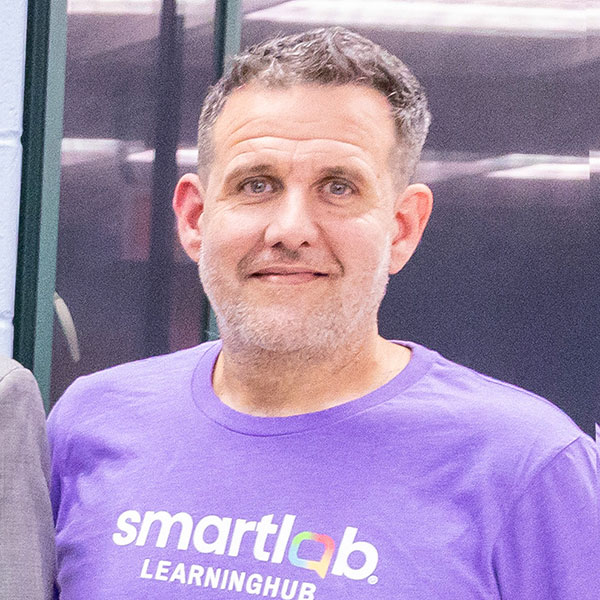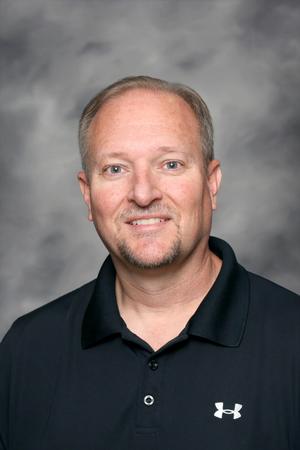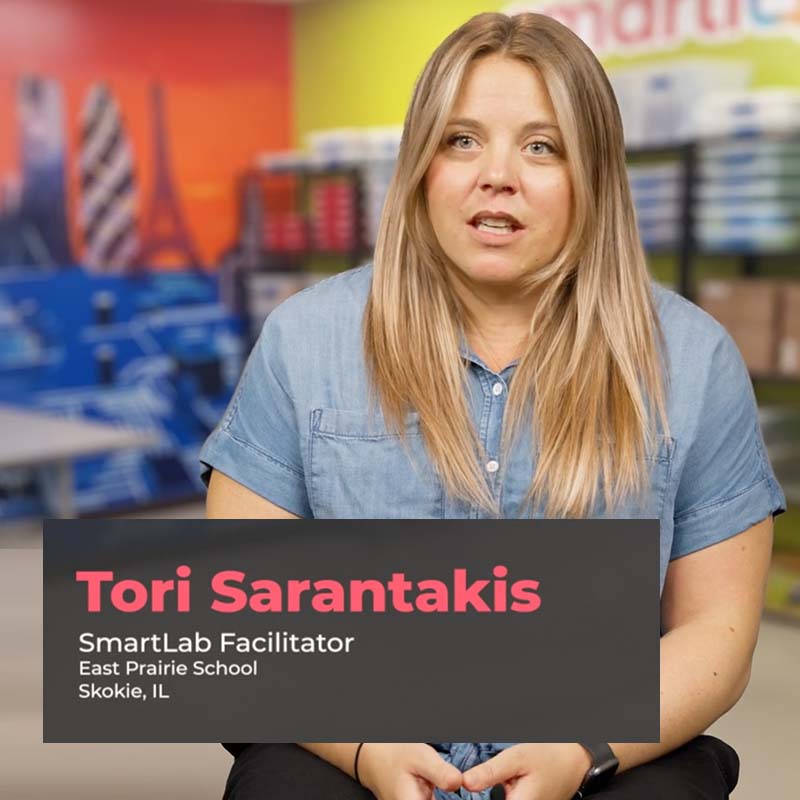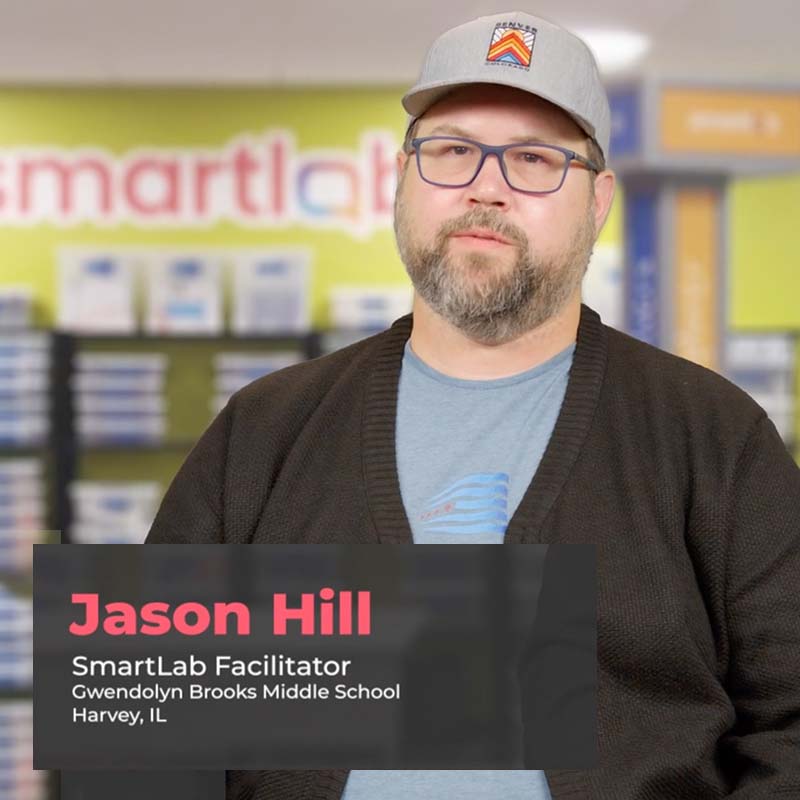Student engagement is at levels I have never seen in my 23 years of teaching. Students love the lab and are constantly asking if they can come down in their free time to continue working with Ukits, or Engino, etc. I’ve never been busier as a teacher, but also have never had more fun. It’s encouraged me to gladly take work home and get more proficient in areas such as coding and circuitry. I see myself as a lifelong learner, and this lab not only meets the needs of my students but also fulfills my own growth as a facilitator and person. I appreciate my administration for investing in this lab and appreciate SmartLab for offering such an incredible product!!!

Agriculture, Natural Resources, and Energy
The Agriculture, Natural Resources, and Energy (ANRE) career pathway is rapidly evolving due to advancements in technology, the demand for sustainable solutions, and the global focus on food security and renewable energy. As the world faces challenges related to climate change, population growth, and resource depletion, STEM (Science, Technology, Engineering, and Mathematics) skills are becoming critical for addressing these issues. The integration of STEM into ANRE careers will equip professionals with the tools and knowledge necessary to innovate, improve efficiency, and create sustainable practices.
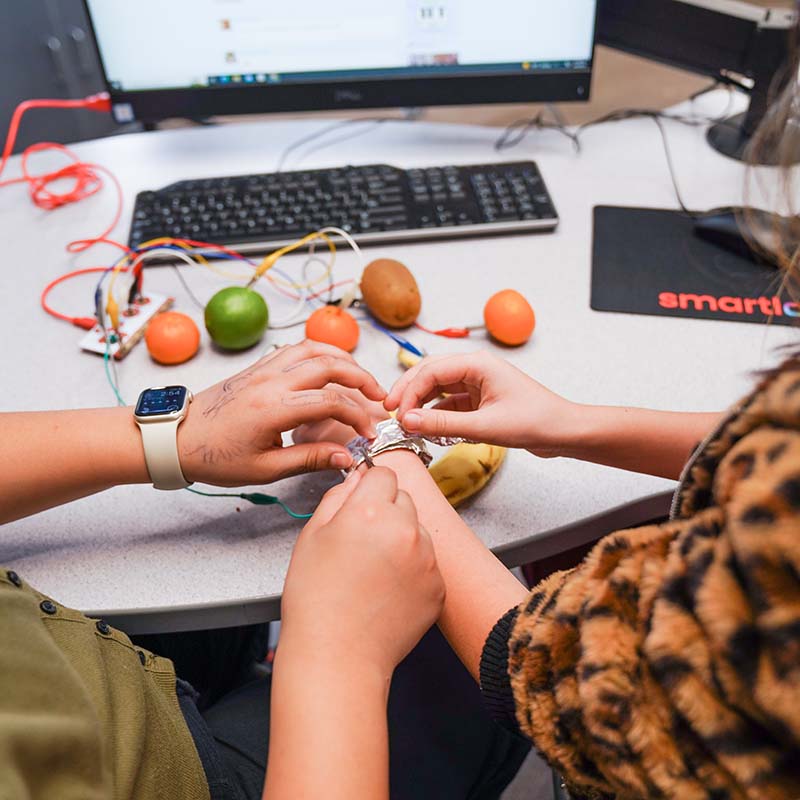
Early exposure to the Agriculture, Natural Resources,
and Energy career pathway benefits students
Introducing elementary students to industry pathways, particularly Agriculture, Natural Resources, and Energy (ANRE), at an early age is crucial for several reasons. Here are some key points to emphasize the importance of early exposure to AGR career pathways and how it can impact students:
Fostering Environmental Awareness
Learning about AGR pathways helps students develop an early understanding of the environment, sustainability, and the role that agriculture and natural resources play in maintaining ecological balance. This awareness encourages a lifelong appreciation for the environment and sustainable practices.
Promoting
Future-Ready Skills
As the world faces challenges like climate change, energy sustainability, and food security, introducing AGR pathways early equips students with foundational knowledge about essential industries. This knowledge fosters problem-solving skills and a sense of responsibility to address future global challenges through innovative thinking and sustainable solutions.
Broadening
Career Horizons
Exposure to AGR pathways helps students see the diversity of career options available within these industries—beyond traditional farming to roles in renewable energy, conservation, wildlife management, sustainable agriculture, environmental engineering, and more. Early exposure expands their perception of career possibilities, helping them develop passions that align with both their interests and the future demands of society.
Linking STEM with
Real-World Applications
AGR pathways emphasize practical, real-world applications of science, technology, engineering, and mathematics (STEM). When students understand how STEM is applied in growing food, conserving resources, and generating energy, they become more engaged with their learning. This also provides a more tangible connection to the subjects they study, making their learning more meaningful.
Building Social and Economic Awareness
Agriculture, natural resources, and energy are vital to the economy and society. Early education about these industries allows students to appreciate the importance of food production, energy generation, and environmental conservation in everyday life. It also introduces them to concepts like sustainability, ethical resource management, and global food systems, fostering a sense of global citizenship
Encouraging Innovation
and Adaptability
The AGR industries are rapidly evolving due to advances in technology (e.g., precision agriculture, renewable energy sources). Exposing students to these sectors early sparks curiosity and encourages them to become innovators who can adapt to and contribute to the future of these industries.

Professionals in the ANRE fields must navigate the complex relationships between economic growth, environmental sustainability, and ethical considerations. STEM education promotes a deep understanding of these issues, preparing individuals to develop solutions that are scientifically sound and socially responsible.
Key skills built through STEM with ANRE
STEM education teaches students to analyze data, conduct experiments, and solve complex problems—skills that are critical for optimizing resource use, improving crop yields, and developing sustainable energy systems.
Technological Proficiency
With the rise of agricultural technologies, renewable energy systems, and environmental monitoring tools, STEM-trained professionals must be proficient in using cutting-edge tools like sensors, drones, and GIS software.
Environmental and Ethical Awareness
Professionals in the ANRE fields must navigate the complex relationships between economic growth, environmental sustainability, and ethical considerations. STEM education promotes a deep understanding of these issues, preparing individuals to develop solutions that are scientifically sound and socially responsible.
Interdisciplinary Thinking
Many challenges in agriculture and energy require interdisciplinary solutions, combining biology, chemistry, physics, and engineering to address food security, resource management, and energy sustainability. STEM education fosters this cross-disciplinary mindset.
Analytical and Problem-Solving Skills
STEM education teaches students to analyze data, conduct experiments, and solve complex problems—skills that are critical for optimizing resource use, improving crop yields, and developing sustainable energy systems.
Hear from our happy clients.
Ready to start planning your SmartLab?
We’re excited to hear from you. Let’s change the way your students engage with math and science–in and outside the classroom.


